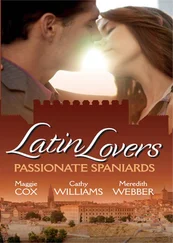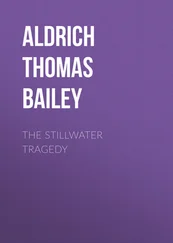Thomas Kyd - The Spanish Tragedie
Здесь есть возможность читать онлайн «Thomas Kyd - The Spanish Tragedie» — ознакомительный отрывок электронной книги совершенно бесплатно, а после прочтения отрывка купить полную версию. В некоторых случаях можно слушать аудио, скачать через торрент в формате fb2 и присутствует краткое содержание. Жанр: unrecognised, на английском языке. Описание произведения, (предисловие) а так же отзывы посетителей доступны на портале библиотеки ЛибКат.
- Название:The Spanish Tragedie
- Автор:
- Жанр:
- Год:неизвестен
- ISBN:нет данных
- Рейтинг книги:5 / 5. Голосов: 1
-
Избранное:Добавить в избранное
- Отзывы:
-
Ваша оценка:
- 100
- 1
- 2
- 3
- 4
- 5
The Spanish Tragedie: краткое содержание, описание и аннотация
Предлагаем к чтению аннотацию, описание, краткое содержание или предисловие (зависит от того, что написал сам автор книги «The Spanish Tragedie»). Если вы не нашли необходимую информацию о книге — напишите в комментариях, мы постараемся отыскать её.
libreka classics – These are classics of literary history, reissued and made available to a wide audience.
Immerse yourself in well-known and popular titles!
The Spanish Tragedie — читать онлайн ознакомительный отрывок
Ниже представлен текст книги, разбитый по страницам. Система сохранения места последней прочитанной страницы, позволяет с удобством читать онлайн бесплатно книгу «The Spanish Tragedie», без необходимости каждый раз заново искать на чём Вы остановились. Поставьте закладку, и сможете в любой момент перейти на страницу, на которой закончили чтение.
Интервал:
Закладка:
Title: The Spanish Tragedie
by Thomas Kyd
ISBN 978-3-7429-5870-9
All rights reserved
It is not permitted to reproduce or publish this work in whole or in part without prior written permission.
THE SPANISH TRAGEDIE
1587
By Thomas Kyd
Containing the lamentable end of DON HORATIO, and BEL-IMPERIA:
with the pittiful death of olde HIERONIMO.
Newly corrected and amended of such grosse faults as passed in the first impression.
At London
Printed by Edward Allde, for
Edward White
TRANSCRIBER'S NOTE:
[Edited by John Matthews Manly, 1897. This electronic text is based on the earliest extant edition, which is undated but was printed before 1618. Some bracketed text is verbatim from Manly's edition. However, some bracketed text is taken from alternate editions which Manly originally supplied in footnotes. As the editor of this electronic edition, I have sometimes chosen the clearer of two alternatives, sacrificing the specificity of Manly's footnoted edition in favor of a text that has a better chance of being read and understood by a modern audience. I have also excluded the insertions supposed to have been written by Ben Johnson, as well as the additional dialogue from III.xiii and IV.iii. Some alternate dialogue has been included as has been labeled as such.]
CONTENTS
DRAMATIS PERSONAE. DRAMATIS PERSONAE. GHOST OF ANDREA | REVENGE | the Chorus. KING OF SPAIN. VICEROY OF PORTUGAL. DON CIPRIAN, duke of Castile. HIERONIMO, knight-marshall of Spain. BALTHAZAR, the Viceroy's son. LORENZO, Don Ciprian's son [and Bel-imperia's brother]. HORATIO, Hieronimo's son. ALEXANDRO | VILLUPPO | lords of Portual. PEDRINGANO, servant of Bel-imperia. SERBERINE, servant of Balthazar. Spanish General, Portuguese Embassador, Old Man, Painter Page, Hangman, Citizens, Soldiers, Attendants, &c. BEL-IMPERIA, Lorenzo's sister. ISABELLA, Hieronimo's wife. PAGE. MESSENGER. CHRISTOPHEL. SERVANT. SENEX (DON BAZULTO). CITIZENS.
ACTVS PRIMVS.
[Prologue]
[ACT I. SCENE 2.]
[ACT I. SCENE 3.]
ACTUS SECUNDUS.
[ACT II. SCENE 1.]
[ACT II. SCENE 2.]
[ACT II. SCENE 3.]
[ACT II. SCENE 4.]
ACTUS TERTIUS.
[ACT III. SCENE 1.]
[ACT III. SCENE 2.]
[ACT III. SCENE 3.]
[ACT III. SCENE 4.]
[ACT III. SCENE 5.]
[ACT III. SCENE 6.]
[ACT III. SCENE 7.]
[ACT III. SCENE 8.]
[ACT III. SCENE 9.]
[ACT III. Scene 10.]
[ACT III. SCENE 11.]
[ACT III. SCENE 12.]
[ACT III. SCENE 13.]
[ACT III. SCENE 14.]
ACTUS QUARTUS.
[ACT IV. SCENE 1.]
[ACT IV. SCENE 2.]
[ACT IV. SCENE 3.]
DRAMATIS PERSONAE.
GHOST OF ANDREA |
REVENGE | the Chorus.
KING OF SPAIN.
VICEROY OF PORTUGAL.
DON CIPRIAN, duke of Castile.
HIERONIMO, knight-marshall of Spain.
BALTHAZAR, the Viceroy's son.
LORENZO, Don Ciprian's son [and Bel-imperia's brother].
HORATIO, Hieronimo's son.
ALEXANDRO |
VILLUPPO | lords of Portual.
PEDRINGANO, servant of Bel-imperia.
SERBERINE, servant of Balthazar.
Spanish General, Portuguese Embassador, Old Man, Painter Page,
Hangman, Citizens, Soldiers, Attendants, &c.
BEL-IMPERIA, Lorenzo's sister.
ISABELLA, Hieronimo's wife.
PAGE.
MESSENGER.
CHRISTOPHEL.
SERVANT.
SENEX (DON BAZULTO).
CITIZENS.
[Prologue]
Enter the GHOAST OF ANDREA, and with him REUENGE.
GHOAST. When this eternall substance of my soule
Did liue imprisond in my wanton flesh,
Ech in their function seruing others need,
I was a courtier in the Spanish court:
My name was Don Andrea; my discent,
Though not ignoble, yet inferiour far
To gratious fortunes of my tender youth,
For there, in prime and pride of all my yeeres,
By duteous seruice and deseruing loue,
In secret I possest a worthy dame,
Which hight sweet Bel-imperia by name.
But in the haruest of my sommer ioyes
Deaths winter nipt the blossomes of my blisse,
Forcing diuorce betwixt my loue and me;
For in the late conflict with Portingale
My valour drew me into dangers mouth
Till life to death made passage through my wounds.
When I was slaine, my soule descended straight
To passe the flowing streame of Archeron;
But churlish Charon, only boatman there,
Said that, my rites of buriall not performde,
I might not sit amongst his passengers.
Ere Sol had slept three nights in Thetis lap,
And slakte his smoaking charriot in her floud,
By Don Horatio, our knight-marshals sonne,
My funerals and obsequies were done.
Then was the fariman of hell content
To passe me ouer to the slimie strond
That leades to fell Auernus ougly waues.
There, pleasing Cerberus with honied speech,
I past the perils of the formost porch.
Not farre from hence, amidst ten thousand soules,
Sate Minos, Eacus and Rhadamant;
To whome no sooner gan I make approach,
To craue a pasport for my wandring ghost,
But Minos in grauen leaues of lotterie
Drew forth the manner of my life and death.
"This knight," quoth he, "both liu'd and died in loue;
And for his loue tried fortune of the warres;
And by warres fortune lost both loue and life."
"Why then," said Eacus, "convey him hence
To walke with lovers in our field of loue
And the course of euerlasting time
Vnder greene mirtle-trees and cipresse shades."
"No, no!" said Rhadamant, "it were not well
With louing soules to place a martialist.
He died in warre, and must to martiall fields,
Where wounded Hector liues in lasting paine,
And Achilles Mermedons do scoure the plaine."
Then Minos, mildest censor of the three,
Made this deuice, to end the difference:
"Send him," quoth he, "to our infernall king,
To dome him as best seemes his Maiestie."
To this effect my pasport straight was drawne.
In keeping on my way to Plutos court
Through dreadfull shades of euer-glooming night,
I saw more sights than thousand tongues can tell
Or pennes can write or mortall harts can think.
Three waies there were: that on the right hand side
Was ready way vnto the foresaid fields
Where louers liue and bloudie martialists,
But either sort containd within his bounds;
The left hand path, declining fearfuly,
Was ready downfall to the deepest hell,
Where bloudie Furies shakes their whips of steele,
And poore Ixion turnes an endles wheele,
Where vsurers are choakt with melting golde,
And wantons are imbraste with ougly snakes,
And murderers groane with neuer-killing wounds,
And periured wights scalded in boiling lead,
And all foule sinnes with torments ouerwhelmd;
Twixt these two waies I trod the middle path,
Which brought me to the faire Elizian greene,
In midst whereof there standes a stately towre,
The walles of brasse, the gates of adamant.
Heere finding Pluto with his Proserpine,
I shewed my pasport, humbled on my knee.
Whereat faire Proserpine began to smile,
And begd that onely she might giue me doome.
Pluto was pleasd, and sealde it with a kisse.
Forthwith, Reuenge, she rounded thee in th' eare,
And bad thee lead me though the gates of horn,
Where dreames haue passage in the silent night.
No sooner had she spoke but we weere heere,
I wot not how, in the twinkling of an eye.
Читать дальшеИнтервал:
Закладка:
Похожие книги на «The Spanish Tragedie»
Представляем Вашему вниманию похожие книги на «The Spanish Tragedie» списком для выбора. Мы отобрали схожую по названию и смыслу литературу в надежде предоставить читателям больше вариантов отыскать новые, интересные, ещё непрочитанные произведения.
Обсуждение, отзывы о книге «The Spanish Tragedie» и просто собственные мнения читателей. Оставьте ваши комментарии, напишите, что Вы думаете о произведении, его смысле или главных героях. Укажите что конкретно понравилось, а что нет, и почему Вы так считаете.












